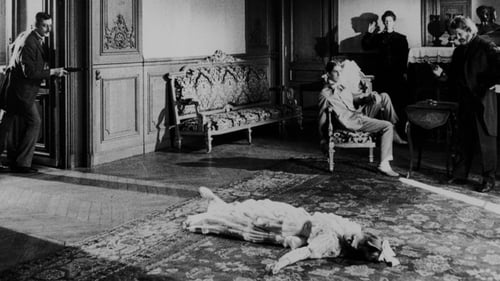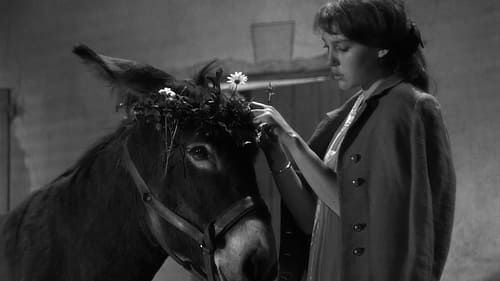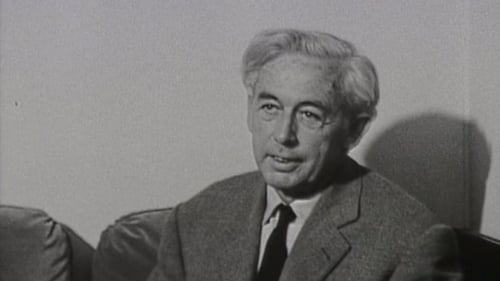Pierre Klossowski
Nacimiento : 1905-08-08, Paris, France
Muerte : 2001-08-12

Self
The film contains the interviews with Pierre Klossowski and Jacques Pimpanneau.

Himself
Portrait of french author and painter Pierre Klossowski

Novel
The film opens with a rubber-clad woman stepping sensuously out of a limousine. The camera lovingly closes-up on her stilletoed foot... She enters a dark desolate warehouse, and meets two men, who proceed to chain her up and worship her body. Originally projected on three screens simultaneously. Music by legendary noise musician Merzbow.

Novel
Roberte, 40, resistant during the war, Calvinist and anticlerical, is deputy to the chamber and inspector of Censorship. She married Octave, an old Catholic aesthete, professor of canon law, whom she saves from impeachment for collaboration during the war. He submits his wife to a perverse custom: the laws of hospitality or prostitution of the wife by the husband.

Adaptation
Roberte, 40, resistant during the war, Calvinist and anticlerical, is deputy to the chamber and inspector of Censorship. She married Octave, an old Catholic aesthete, professor of canon law, whom she saves from impeachment for collaboration during the war. He submits his wife to a perverse custom: the laws of hospitality or prostitution of the wife by the husband.

Octave
Roberte, 40, resistant during the war, Calvinist and anticlerical, is deputy to the chamber and inspector of Censorship. She married Octave, an old Catholic aesthete, professor of canon law, whom she saves from impeachment for collaboration during the war. He submits his wife to a perverse custom: the laws of hospitality or prostitution of the wife by the husband.

Writer
Dos narradores, uno al que vemos (el coleccionista) y otro al que no vemos (el documentalista), discuten sobre una serie de pinturas. El tema elegido es la obra de un supuesto artista francés, Tonnerre, quien en el siglo XIX habría retratado las diferentes imágenes de una ceremonia secreta que fue posteriormente interrumpida por las autoridades, propiciando un escándalo. Pero no, quizás lo que hizo el artista fue ocultar en esa representación las pistas de otro escándalo, aun mayor, que involucraba a una conocida familia de la época. De esta manera, el coleccionista recorre la geografía del cuadro, buscando los indicios de la verdad oculta.

Thanks
En una mansión, cuatro señores se reúnen con cuatro exprostitutas y con un grupo de jóvenes de ambos sexos, partisanos o hijos de partisanos, que han sido hechos prisioneros. Nadie en la casa puede eludir las reglas del juego establecidas por los señores; toda transgresión se castiga con la muerte. Además, ellos gozan de la facultad de disponer a su antojo de la vida de los cautivos.

Merchant
Baltasar es un burro que vive sus primeros años rodeado de la alegría y los juegos de los niños hasta llegar a la edad adulta, en que es utilizado como una bestia de carga y maltratado por sus diferentes amos.

Self
A documentary, originally produced in 1966 for the French TV series "Pour le plaisir," about Robert Bresson's film "Au Hasard Balthazar," featuring interviews and discussions with Bresson, Jean-Luc Godard, Louis Malle, Marguerite Duras and others.

Self
Celluloid and Marble is based on Rohmer's own articles published in "Cahiers du cinéma", discussing film in relation to the other arts, maintaining that, in an age of cultural self-consciousness, cinema was “the last refuge of poetry” - the only contemporary art form from which metaphor could still spring naturally and spontaneously.








